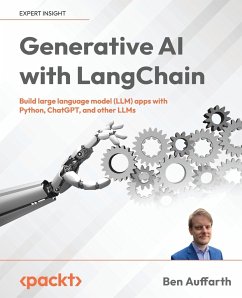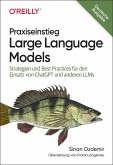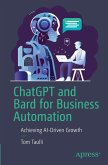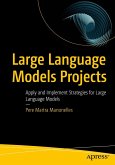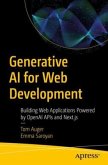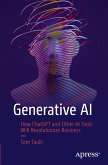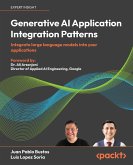2024 Edition - Get to grips with the LangChain framework to develop production-ready applications, including agents and personal assistants. The 2024 edition features updated code examples and an improved GitHub repository. Purchase of the print or Kindle book includes a free PDF eBook. Key Features: - Learn how to leverage LangChain to work around LLMs' inherent weaknesses - Delve into LLMs with LangChain and explore their fundamentals, ethical dimensions, and application challenges - Get better at using ChatGPT and GPT models, from heuristics and training to scalable deployment, empowering you to transform ideas into reality Book Description: ChatGPT and the GPT models by OpenAI have brought about a revolution not only in how we write and research but also in how we can process information. This book discusses the functioning, capabilities, and limitations of LLMs underlying chat systems, including ChatGPT and Gemini. It demonstrates, in a series of practical examples, how to use the LangChain framework to build production-ready and responsive LLM applications for tasks ranging from customer support to software development assistance and data analysis - illustrating the expansive utility of LLMs in real-world applications. Unlock the full potential of LLMs within your projects as you navigate through guidance on fine-tuning, prompt engineering, and best practices for deployment and monitoring in production environments. Whether you're building creative writing tools, developing sophisticated chatbots, or crafting cutting-edge software development aids, this book will be your roadmap to mastering the transformative power of generative AI with confidence and creativity. What You Will Learn: - Create LLM apps with LangChain, like question-answering systems and chatbots - Understand transformer models and attention mechanisms - Automate data analysis and visualization using pandas and Python - Grasp prompt engineering to improve performance - Fine-tune LLMs and get to know the tools to unleash their power - Deploy LLMs as a service with LangChain and apply evaluation strategies - Privately interact with documents using open-source LLMs to prevent data leaks Who this book is for: The book is for developers, researchers, and anyone interested in learning more about LangChain. Whether you are a beginner or an experienced developer, this book will serve as a valuable resource if you want to get the most out of LLMs using LangChain. Basic knowledge of Python is a prerequisite, while prior exposure to machine learning will help you follow along more easily. Table of Contents - What are Generative Models? - LangChain: Core Fundamentals - Getting started with LangChain - Question Answering over Docs - Building a Chatbot like ChatGPT/Bard - Developing Software with LangChain Coder - LLM for Data Analysis - Prompt Engineering - LLM applications in Production - The Future of Generative Models
Hinweis: Dieser Artikel kann nur an eine deutsche Lieferadresse ausgeliefert werden.
Hinweis: Dieser Artikel kann nur an eine deutsche Lieferadresse ausgeliefert werden.

